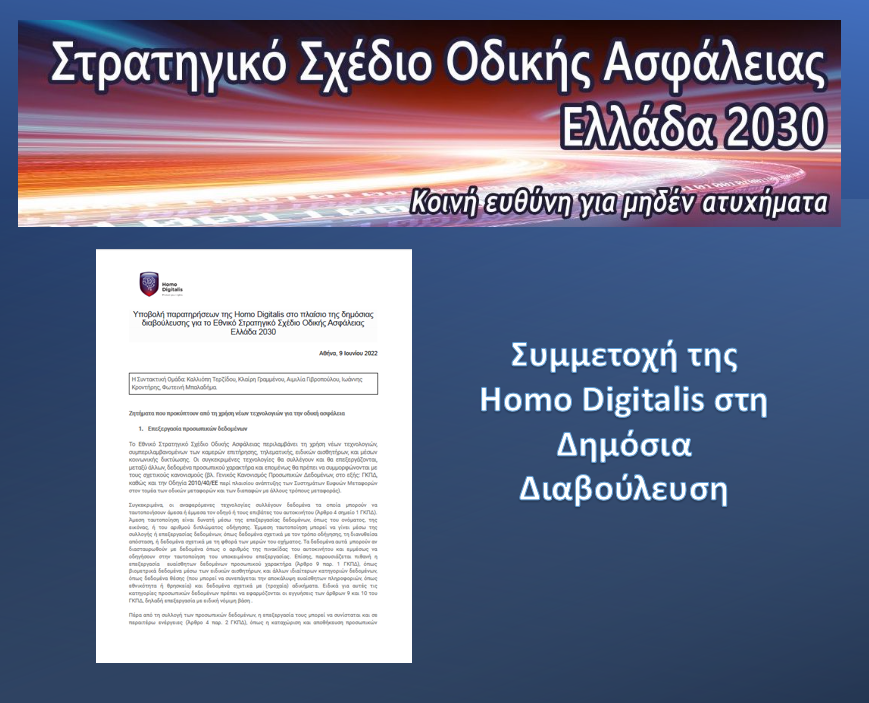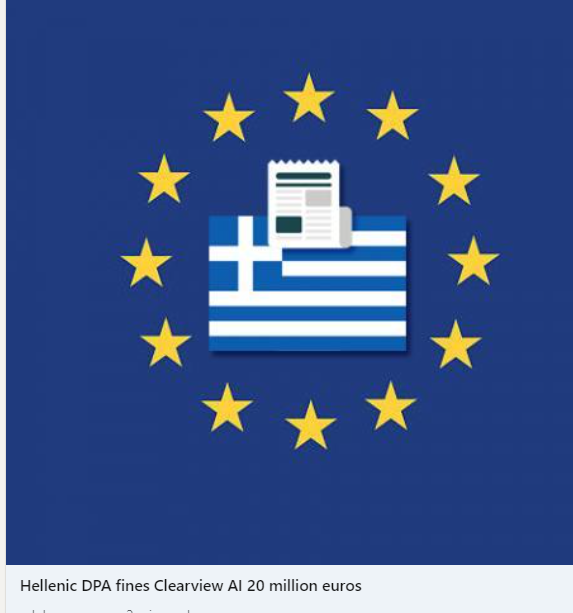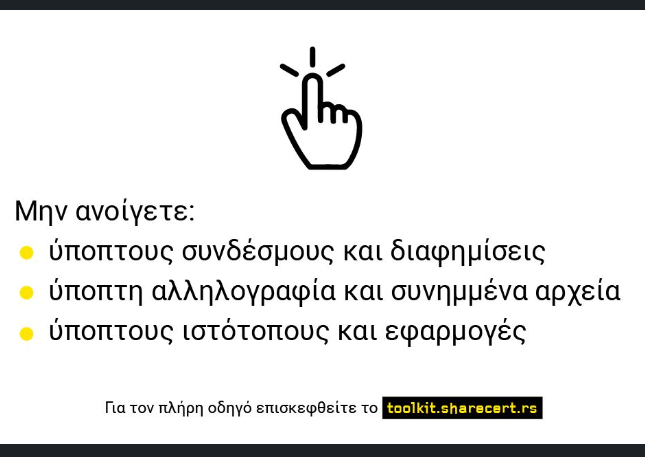National Strategic Road Safety Plan: Homo Digitalis participates in the public consultation
On 9 June 2022, Homo Digitalis submitted its comments to the competent authorities in the context of the public consultation on the National Road Safety Plan 2030.
With its submission, Homo Digitalis focuses both on personal data issues arising in the context of the application of new technologies for ensuring Road Safety, such as surveillance cameras, telematics, special sensors, and social media, and on issues related to the use of AI technologies, such as machine learning systems to transform data into useful indicators for the Road Safety sector.
We would like to thank the team of Homo Digitalis members for their voluntary contribution in writing and submitting these comments. The editorial team was composed of the following members: Kalliopi Terzidou, Claire Grammenou, Emilia Givropoulou, Ioannis Krontiris, and Fotini Bajemaa.
You can view the full text of Homo Digitalis’ comments in PDF format here.
You can view our comments as posted on the official website of the Ministry of Infrastructure and Transport here.
European Data Protection Board publishes a news item about Greek DPA's fine against CLEARVIEW AI and our case
The European Data Protection Board has published an article on the €20 million fine imposed by the Greek DPA against CLEARVIEW AI following Homo Digitalis’ successful action. We note that this action is part of a wider strategic action jointly with Privacy International, noyb and Hermes Center for Transparency and Digital Human Rights in Italy, Greece, UK, France and Austria.
You can read the European Data Protection Board’s feature here.
Homo Digitalis participates in the development of a cybersecurity guide
The SHARE Foundation, in collaboration with Homo Digitalis, SCiDEV, Hivos and the Digital Defenders Partnership, has developed the Cybersecurity Toolkit – a single website where you will find answers to all the privacy and security issues you may face on the Internet.
Whether used as an incident response resource or as a learning platform, this useful and inclusive Cybersecurity Toolkit provides up-to-date and easy-to-understand information in just a few clicks!
Thanks to our member Tasos Arampatzis who represented Homo Digitalis in the related work for the development of the toolkit and its promotional campaign.
Visit the full Guide for free here.
Homo Digitalis' statements to NEWS247 about the fine against CLEARVIEW AI
The member of Homo Digitalis Marina Zacharopoulou gave statements to the news medium NEWS247 about the fine of 20 million euros imposed by the Greek DPA on CLEARVIEW AI.
The fine is the result of a strategic action by Homo Digitalis at European level, in cooperation with Privacy International, noyb and Hermes Center for Transparency and Digital Human Rights in Italy, Greece, UK, France and Austria.
We would like to thank journalist Korina Petridi for her interest in our actions. You can read the article and Homo Digitalis’ statements here.
Homo Digitalis at the AI & Peace event
Homo Digitalis Vice President Stefanos Vitoratos participated in the event on “AI & Peace at the European Parliament Office in Greece, organized by ELONtech-European Law Observatory on New Technologies, in cooperation with the WeFor team and under the auspices of the Vice President of the European Parliament, Mrs. Eva Kaili.
Stefanos Vitoratos spoke with Ms. Niki Eliadi, executive of The Future Society, about the relationship between AI and Social Innovation, analysing the respective social impact.
A big success for Homo Digitalis: The Hellenic DPA fines CLEARVIEW AI with €20 million
Today, following a complaint filed by Homo Digitalis in May 2021 representing our member and data subject Marina Zacharopoulou, the Hellenic Data Protection Authority (HDPA) issued Decision 35/2022 imposing a fine of 20 million euros on Clearview AI for its intrusive practices. This is the highest GDPR fine, ever imposed by the Hellenic DPA. By the same Decision, the DPA prohibits that company from collecting and processing the personal data of data subjects located in Greece using facial recognition methods and requires it to delete immediately any data it has already collected.
Specifically, in May 2021, an alliance of civil society organizations consisting of Homo Digitalis and the organizations Privacy International, Hermes Center, and noyb filed complaints before the competent authorities in Greece, the United Kingdom, Italy, Austria, France and the United Kingdom against Clearview AI for its mass surveillance practices through facial recognition.
Earlier this year, the Italian Data Protection Authority had decided to fine the company €20 million, while the UK’s equivalent authority had decided to fine it £7.5 million.
The €20 million fine imposed by the DPA today is another strong signal against intrusive business models of companies that seek to make money through the illegal processing of personal data. At the same time, it sends a clear message to law enforcement authorities working with companies of this kind that such practices are illegal and grossly violate the rights of data subjects.
Clearview AI is an American company founded in 2017 that develops facial recognition software. It claims to have “the largest known database of more than three billion facial images” which it collects from social media platforms and other online sources. It is an automated tool that visits public websites and collects any images it detects that contain human faces. Along with these images, the automated collector also collects metadata that complements these images, such as the title of the website and its source link. The collected facial images are then matched against the facial recognition software created by Clearview AI in order to build the company’s database. Clearview AI sells access to this database to private companies and law enforcement agencies, such as police authorities, internationally.
The full text of Decision 35/2022 can be found here (only in EL).
Homo Digitalis at the International Data Transfers & Compliance Summit
Homo Digitalis member Stergios Konstantinou, successfully participated in the International Data Transfers & Compliance Summit in London, UK.
There he discussed issues related to compliance with the provisions of the GDPR regarding the legal bases of processing for transfers of personal data to international organisations and recipients outside the European Economic Area, the latest news on issues related to transfers based on adequacy decisions and other issues related to transfers through binding corporate rules. Among others.
The conference took place on 23-24 June
Homo Digitalis at Quo Vadis AI
The Secretary of Homo Digitalis, Lefteris Chelioudakis successfully participated in the important domestic conference on legal issues concerning AI Quo Vadis AI.
The panel we participated in was chaired by the President of the Data Protection Authority, Mr. Konstantinos Menoudakos, and was attended by speakers of excellent quality, namely Professor Eleni Kosta of Tilburg University, Dr. Nienke van der Have, of the EU Fundamental Rights Agency, Dr. Ioannis Kobatsiaris of CERTH-ITI, and Mr. Andreas Tsagaris of Performance Technologies S.A.
Eleftherios Chelioudakis focused his presentation on Homo Digitalis cases that have been of interest to the AIPPI over the last 4 years in the field of AI. You can read more about the Quo Vadis AI conference here.
Homo Digitalis participates in #RightsCon2022
Homo Digitalis had the great honor and pleasure to participate for the 2nd consecutive time in RightsCon 2022, the largest Human Rights conference in the world!
Specifically, on 8/6 our co-founder and Secretary of the Board, Eleftherios Chelioudakis represented us in the panel organized by the organization No Tech For Tyrants, speaking about our actions against intrusive technologies used by the Greek Police, along with speakers from the University of Cambridge, the Internet Freedom Foundation, Mozilla and CESeC!
Also, on 9/6, our team participated in the Social Hour Gathering of European Digital Rights and we had the opportunity to inform the public about our activities at national and European level!
You can find out more about RightsCon2022 and watch our interventions recorded here (registration on the conference platform required).








